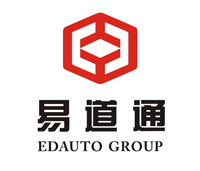At a time when the Russian auto market is in a period of recovery, the Russian Ministry of Industry and Trade has introduced a tax hike: from 1 August, all cars exported to Russia will have an increased scrapping tax...
After the departure of US and European car brands, Chinese brands arrived in Russia in 2022, and its ailing car market recovered quickly, with 428,300 new car sales in Russia in the first half of 2023.
Chairman of the Russian Automobile Manufacturers' Council, Alexei Kalitsev excitedly stated, "New car sales in Russia will hopefully exceed the one million mark by the end of the year." However, there seems to be some variables, just when the Russian auto market is in the recovery period, the Russian Ministry of Industry and Trade has introduced a tax increase policy: increase the scrapping tax on imported cars.
Since August 1, all cars exported to Russia will increase the scrapping tax, the specific programme: passenger car coefficient increased by 1.7-3.7 times, the coefficient of light commercial vehicles increased by 2.5-3.4 times, the coefficient of trucks increased by 1.7 times.
Since then, only one "scrapping tax" for Chinese cars entering Russia has been raised from 178,000 rubles per car to 300,000 rubles per car (i.e., from about 14,000 yuan per car to 28,000 yuan per car).
Explanation: At present, Chinese cars exported to Russia mainly pay: customs duty, consumption tax, 20% VAT (the total amount of the reverse port price + customs clearance fees + consumption tax multiplied by 20%), customs clearance fees and scrap tax. Previously, electric vehicles were not subject to "customs duty", but as of 2022 Russia has stopped this policy and now charges 15% customs duty on electric vehicles.
The end-of-life tax, commonly referred to as the environmental protection fee based on the engine's emission standards. According to Chat Car Zone, Russia has raised this tax for the 4th time since 2012 until 2021, and this will be the 5th time.
Vyacheslav Zhigalov, vice president and executive director of the Russian Association of Automobile Dealers (ROAD), said in response that it was a bad decision, and that the increase in the tax on imported cars, which already had a large supply gap in Russia, would further restrict imports and deal a fatal blow to the Russian car market, which is far from returning to normal levels.
Yefim Rozgin, editor of Russia's AutoWatch website, said that officials at the Ministry of Industry and Trade had increased the scrapping tax sharply for a very clear purpose - to stop the influx of "Chinese cars" into Russia, which are pouring into the country and essentially killing the local auto industry, which is being supported by the government. The government is supporting the local car industry. But the excuse is hardly convincing.
Post time: Jul-24-2023


